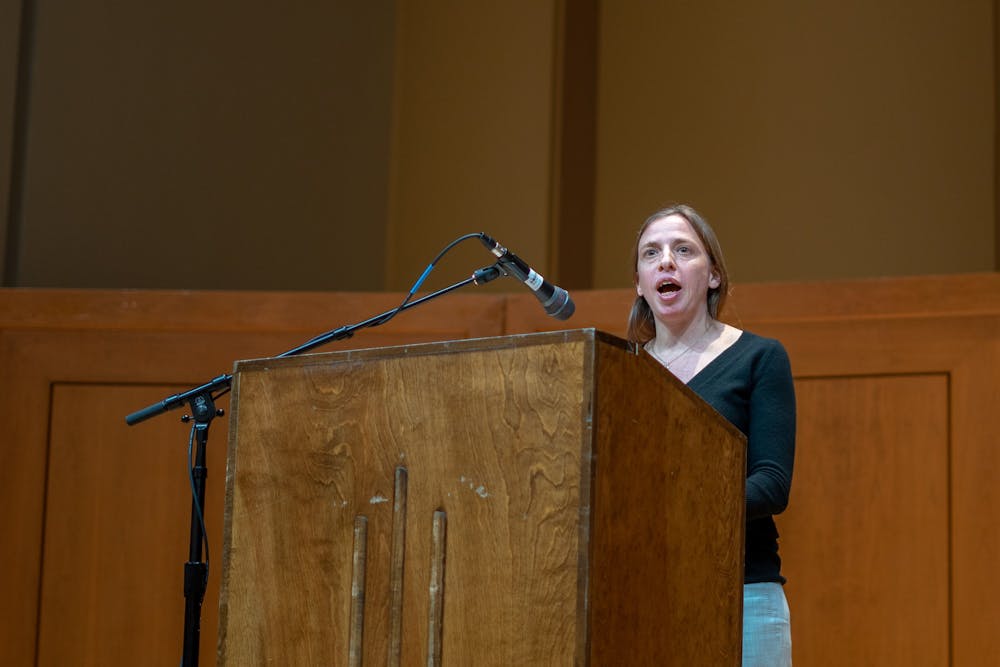About 200 students and community members attended the Carolina Center for Jewish Studies’ annual Holocaust Remembrance Day event Monday evening on the 75th anniversary of the liberation of Auschwitz.
The lecture, entitled “What Might We Remember on Holocaust Remembrance Day? A Historian’s Reflections,” was delivered by David Engel, a professor of Holocaust studies at New York University. Engel is also the author of six books and dozens of articles on Jewish history and the Holocaust.
In 2005, the General Assembly of the United Nations designated Jan. 27 as International Holocaust Remembrance Day. The date was selected to coincide with the liberation of Auschwitz-Birkenau — the largest concentration camp established by the Germans — on Jan. 27, 1945, by the Soviet army.
This annual day of commemoration is intended to honor the six million Jewish victims of the Holocaust, along with millions of other victims of the Nazi regime and promote Holocaust education throughout the world.
Engel began his lecture by conceding that even after decades of studying the Holocaust, the UN’s mandate of remembrance on this day leaves him confused because it is not stated what should be remembered or what lessons should be drawn.
Julia Moore, a first-year student majoring in biology who attended the event, said remembering the Holocaust is valuable, but that remembrance should be grounded in facts.
“I think a lot of it is distorted through people’s opinions and feelings, but I think it’s important to remember the actual facts,” Moore said.
Engel emphasized the value of turning to historians’ work to prevent future genocides.
“It seems to me that although history and memory are sometimes figured as opposing ways of knowing, the work of historians and other scholars who concern themselves with the past can indeed guide the work of commemoration,” Engel said.




